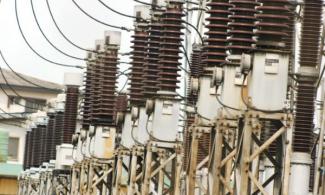
The failure of the government arms to pay the bills is not unconnected with misappropriation of funds by Ministries, Departments and Agencies (MDAs).
The Socio-economic Rights and Accountability Project (SERAP) says the federal and state governments in Nigeria have refused to pay up over N100 billion outstanding electricity bills.
The failure of the government arms to pay the bills is not unconnected with misappropriation of funds by Ministries, Departments and Agencies (MDAs).

SERAP tweeted, “Nigeria's federal and state governments fail to pay over N100 billion outstanding electricity bills.”
The group had earlier asked President Muhammadu Buhari to direct the Attorney General of the Federation and Minister of Justice, Abubakar Malami, and anti-corruption agencies to investigate the spending of over ₦880 billion of public funds by 367 MDAs in 2018 without appropriation.
The group also noted in its letter to Buhari that the prosecution of such persons will aid in the fight against corruption and send a powerful message to other public office holders to desist from perpetrating such practices.
It called on the President to direct Zainab Ahmed, Minister of Finance, Budget, and National Planning to make available, the details of MDAs and public officials involved in the unconstitutional spending of public funds.
SERAP also requested that the President ask the heads of the MDAs involved to explain why they spent public funds without appropriation, citing section 80 (2) of the Nigerian Constitution and Articles 5 and 9 of the United Nations Convention against Corruption.
The body stated that it expects that the recommendation is adhered to within 14 days of the receipt of the letter, as it warned that failure to do this will cause the body to take legal actions against the government.
In a report by Guardian, the failure of the governments to pay over N100 billion outstanding electricity bills has worsened the liquidity crisis in the nation’s electricity sector.
The situation has reportedly led to distribution companies hounding private electricity consumers who pay more through estimated bills and higher tariffs, rather than recover outstanding debts from government agencies.
The development, which many stakeholders described as direct sabotage and failure to respect extant regulations, particularly, the Electric Power Sector Reform Act (EPSRA), has pushed indebtedness of the utility companies to over N500 billion.